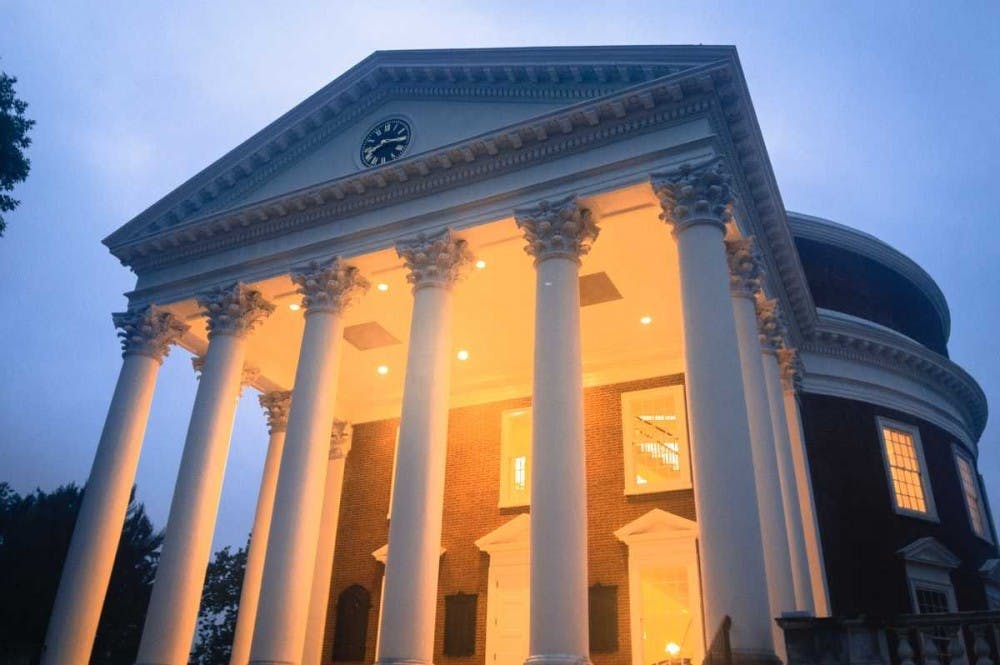I moved into my room on the Lawn on Aug. 11 welcomed by neo-Nazis chanting "Jews will not replace us" as they marched proudly up the Lawn with torches. I've since been dealing with the residual trauma. My experience in the fall of 2017 intensified my reality as a minority student at the University. As both a person of color and a Jewish student, I've lived with microaggressions, stereotypes and discrimination my entire life, yet with the trauma of this fall I've never felt more acutely aware of and threatened because of my identity. Both last semester and the semesters prior, there have been times when I’ve felt truly unsafe because of who I am — as a woman, as a person of color and as a Jew. As an advocate for student self-governance, who holds the genuine belief in my peers to create positive change, I am appalled by the Minority Rights Coalition's decision to deny the Jewish Leadership Council membership into its organization.
The MRC defines itself as an umbrella organization advocating for minority students and diversity at UVA. The MRC includes student organizations representing students of many minority backgrounds. An organization must receive the unanimous support of the MRC's constituent organizations to join. On Feb. 25, the MRC rejected the JLC's request for membership. Instead, the MRC offered to accept one of JLC's five "relevant membership organizations" or an unprecedented "formal partnership" that denies voting rights and legitimate membership as a part of the coalition. Neither of these options would offer the JLC as a whole a voice in minority issues and continues the larger, troubling trend of failing to recognize the Jewish voice as a legitimate contributor to minority conversations. This unfortunately coincides with the uptick in anti-Semitism and anti-Semitic hate speech around Grounds and throughout the country.
The MRC denied the JLC because of its openly Pro-Israel stance. The Israeli-Palestinian conflict is one of the most complex issues in world politics, and many people of different faiths and cultural backgrounds feel strongly about the conflict and advocate for differing solutions, even Jewish students at the University. Excluding the JLC from the MRC closes the opportunity for us to discuss these important issues with each other, and reinforces the idea that our religious and cultural communities have irreconcilable differences despite our shared experience as minority students at the University.
For an organization that prides itself on advocating for minority students and diversity at the University, to deny a religious and cultural organization membership is hypocritical. Additionally, this decision directly violates MRC's Constitutional Purpose, which says in Article II, Section A, Part 1, that the organization strives to create "a university community that truly embraces diversity in all its forms," and in Article II Section C that the organization "recognizes the basic human dignity of all persons, and shall provide programs and activities without discrimination." Perhaps its most apparent violation is restricting membership based on those principles specified in Article III, Section C, Part 1, which states that “the MRC will not restrict membership and/or activity on the basis of reasons specified in Article II Section C of this constitution.”
With many previous Jewish student leaders working closely with the Eliminate the Hate Campaign as well as the March to Reclaim Our Grounds, the JLC has made proactive efforts to work in collaboration with and support the mission of the MRC. Today, Jewish students at the University are in a hard place — the same organization that aims to advocate for minority students and diversity does not value their identity and contribution enough to allow them full membership. By denying the JLC full membership, the MRC prioritized pushing forward blindly with a political perspective rather than valuing the minority student experience at the University.
At a time when we are seeing the growth of hate for all kinds of identities, working together as minority communities is crucial. The last thing we should be doing is working against each other when we could be prioritizing efforts against white supremacy and neo-Nazism. There may be disagreements among minority groups, but we all share the experience of being minority students at the University. It truly has been great to see minority groups collaborate in efforts to support the different lived experiences of the University students both immediately following the domestic terror attacks of Aug. 11 and 12 and in response to the hate speech last year. However, if the MRC truly valued the voice of all minorities at the University, it would grant the JLC full membership into the coalition. The only way we can work toward true diversity is by offering everyone who believes in the mission of the organization a seat at the table — to discuss our unique perspectives, empathize with and value the lived experiences of each other and work together to advocate for minority students at the University — a charge that, with this decision, the Minority Rights Coalition has actively rejected.
Diane D'Costa is a fourth year Public Policy and Leadership & Youth and Social Innovation double-major and Jewish woman of color residing on the Lawn.








